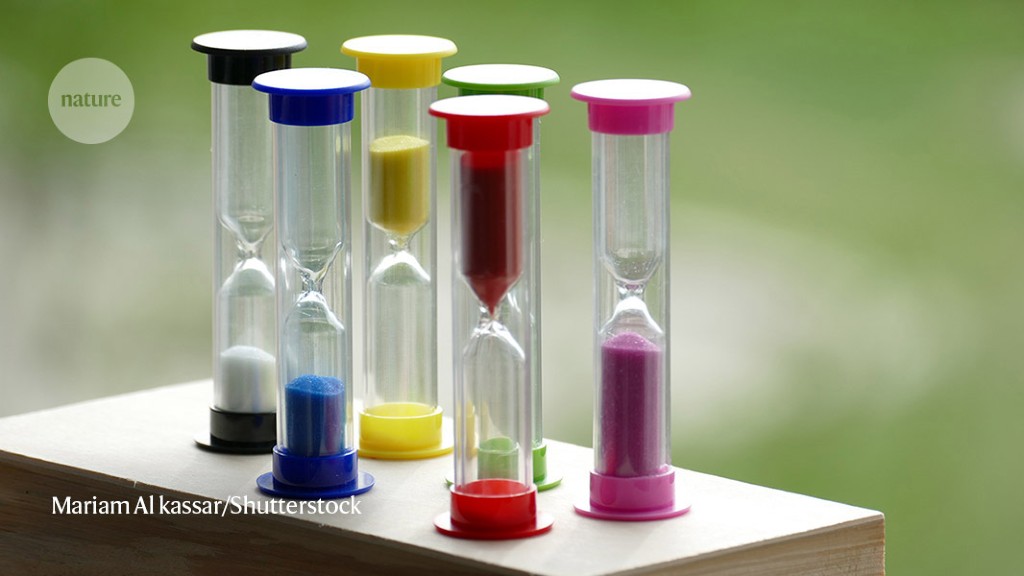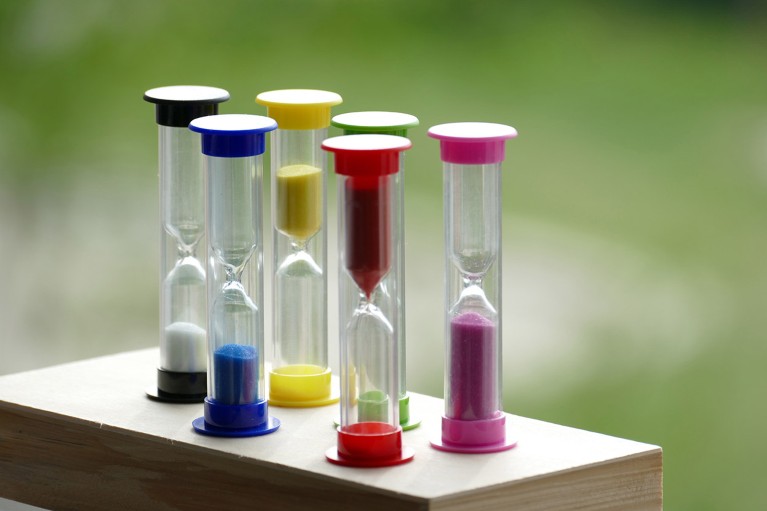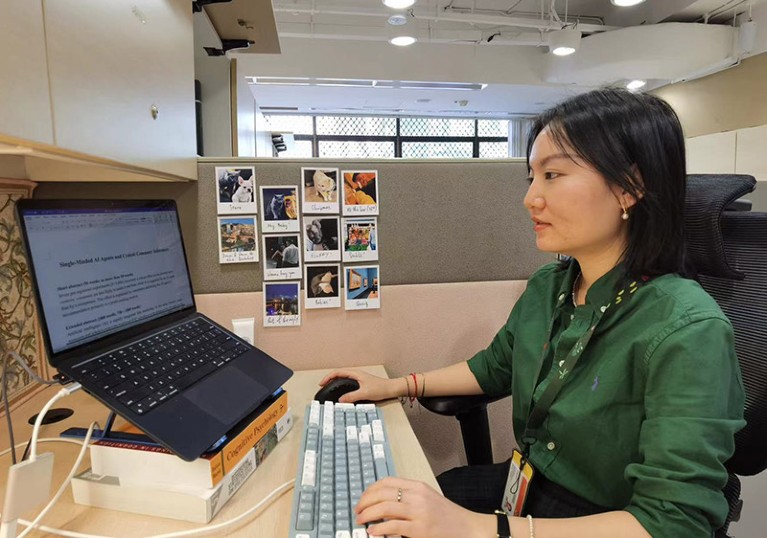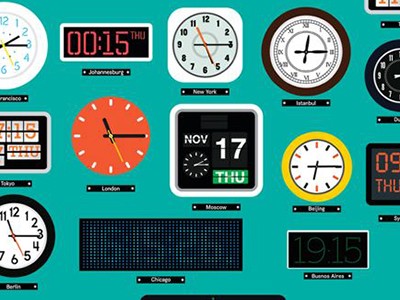Keeping track of time is key not only to working efficiently but also to maintaining a healthy work–life balance.Credit: Mariam Al kassar/Shutterstock
For his PhD in drug design and development, Byron Mubaiwa found planning and executing his laboratory work a breeze. “I spent 10 hours in the lab a day, 5 days a week,” the South African says. “I had a lab notebook I completed every day, and I had a research plan, so I knew exactly what I needed to do, and when.”
But as Mubaiwa moved on to writing his doctoral thesis, managing his performance became a lot more complicated. It had been easy to focus in the lab, but he would now be writing off-campus while juggling a full-time job working as a warehouse pharmacist. How to accomplish that was something he had to work it out himself.
“Nobody spoke to me about time management,” says Mubaiwa, who gained his PhD this year and now works as a project manager for TASK, a clinical-research institute based in Cape Town, South Africa. He started by blocking out times in his Google Calendar to work on his thesis, then tried different time-tracking apps, which helped him to focus.
Then, “everything changed” when he tried an app called Jira — a tool developed by the software company Atlassian for collaboration across teams, but which he found ideal for his thesis writing. “It allowed me to put timelines of when I wanted to complete each chapter and allowed me to estimate timelines and log actual time spent against the estimate.” The app enabled him to generate reports detailing his performance, which led to his accountability levels increasing and his productivity improving “exponentially”.
Time tracking, he found, was a great motivator, as well as a way to organize his work, and it became a skill that he now uses every day while managing complex clinical-research projects for TASK. “Nowadays, tracking is a part of me — I track everything,” he says.
Keep it simple
Ask any doctoral candidate what they find challenging about their work, and time management tends to be up there. In a 2022 survey of more than 3,200 graduate students around the world (Nature 610, 805–808; 2022), half worried that they would not finish their degrees on time and more than two-thirds reported struggles with work–life balance.
How to use ‘20% time’ to manage pet projects
Yet how to manage time is rarely something that universities rarely teach young academics. Someone who helps researchers with this aspect of their work is Melanie Smith, a former law lecturer who now works as an academic coach, offering writing support for researchers at all stages of their careers.
“Time tracking is one of the first things I ask clients to start doing,” says Smith, who spent more than 15 years teaching law at UK universities, in Manchester and Cardiff, and now lives in Ireland. She suggests using something like myhours.com, an app that is basic, but easy and quick to use.
Many of her clients are hesitant at first, saying that they don’t have time to deal with another piece of software. But Smith thinks there might be deeper, more personal reasons why they resist.
“I have people come to me and say: ‘I’ve been working on this paper 8 hours a day and I’m just not making any progress.’ But with time tracking, they find that what they thought was 8 hours was really 45 minutes. The rest of the time was them sitting feeling emotional and writing e-mails, going on the Internet or pretending to do research,” she says. “Lots of time tracking is about breaking that delusion.”
But there is more to successful time tracking than just noting down what was done when. No matter how meticulously those things are recorded, the real benefit comes when the data are used to plan future activities, says Smith.
Mubaiwa says that he used time tracking not just to analyse his progress, but also to keep track of things that blocked his productivity. Gradually, he was able to schedule some slack time into his schedule to allow for the distractions that he knew would inevitably creep in.
He also learnt how to adapt when things took more or less time than he expected. “As long as I felt organized, both hitting the deadlines and being late for them felt like part of the plan,” he says.
But he has also realized that his methods won’t work for everyone. “You have to find what works for you. Keep an open mind about the various techniques out there, but ultimately be kind to yourself.”
Sijin Chen schedules timely breaks to ensure that she’s neither too tired nor too wired to relax.Credit: Sijin Chen
For some, too much tracking can be bad. Sijin Chen, a second-year PhD candidate at the National University of Singapore, tried to track every single hour of her day — whether she was working, relaxing or sleeping. But it just made her paranoid, she says.
Chen, who is from China, is studying consumer behaviour for her doctorate. She says she is “infatuated” with productivity and describes herself as a “small-time influencer”. Her videos on Bilibili, a Chinese variation on YouTube, in which she shares productivity tips and insights from her research, get an average of 50,000 views within a week of posting.
“People in China are starting to look out for work–life balance, especially the younger generation,” she says. However, for Chen, that balance has been elusive. “I wouldn’t say I’m good at time management by nature,” she says. “I’m very easily distracted.”
Manage energy
To maximize her productivity, Chen began scheduling everything, including her downtime, but found it to be counterproductive. Relaxing on demand proved difficult. And even if she took herself out of her working environment — by going to an art gallery, for instance — she struggled to immerse herself in the experience. “I couldn’t stop myself from thinking about work and my endless to-do lists. I was anxious, and then I got anxious over being anxious.”
Time management for scientists
What she does now is schedule blocks of time for work that are short enough to ensure that she does not go into her scheduled downtime either too tired or too wired to relax: “I schedule breaks before I reach that point of exhaustion when all you can do is scrolling on your phone, which is not actually relaxing.”
According to a 2021 survey, 87% of UK university staff said that their workload had increased in size or intensity over the previous three years, and one in ten academics described their workload as “entirely unmanageable” — nearly twice as many as in 2016 (see go.nature.com/3pcg9wd).
Academics who know how they spend their time can use that knowledge to push back when faced with unreasonable demands, says Smith. “When people come and ask you to do yet another thing, you can whip out your chart and say: ‘Hey, listen, this is how I spend my time already. Which part of this do you want me to take away?’”
Know thyself
For those wrestling with time management, Mubaiwa has some tips. He suggests that doctoral students run their PhDs as a series of mini-projects, mapping out high-level timelines, then breaking them into subtasks with detailed timelines for each.
If things become difficult, he suggests staying the course and first changing small things before throwing out the whole plan. Then, most importantly, he says: “Learn about yourself — understand your personality and try to align who you are with how you get things done.”
Smith says that time tracking is a way of bringing accountability to the practice of scheduling your time, to make sure that you achieve your goals. “It tells you what you are actually doing with your time, not what you imagine you are doing with it.”









More News
US funders to tighten oversight of controversial ‘gain-of-function’ research
Bird flu in US cows: where will it end?
Daily briefing: Why exercise is good for us